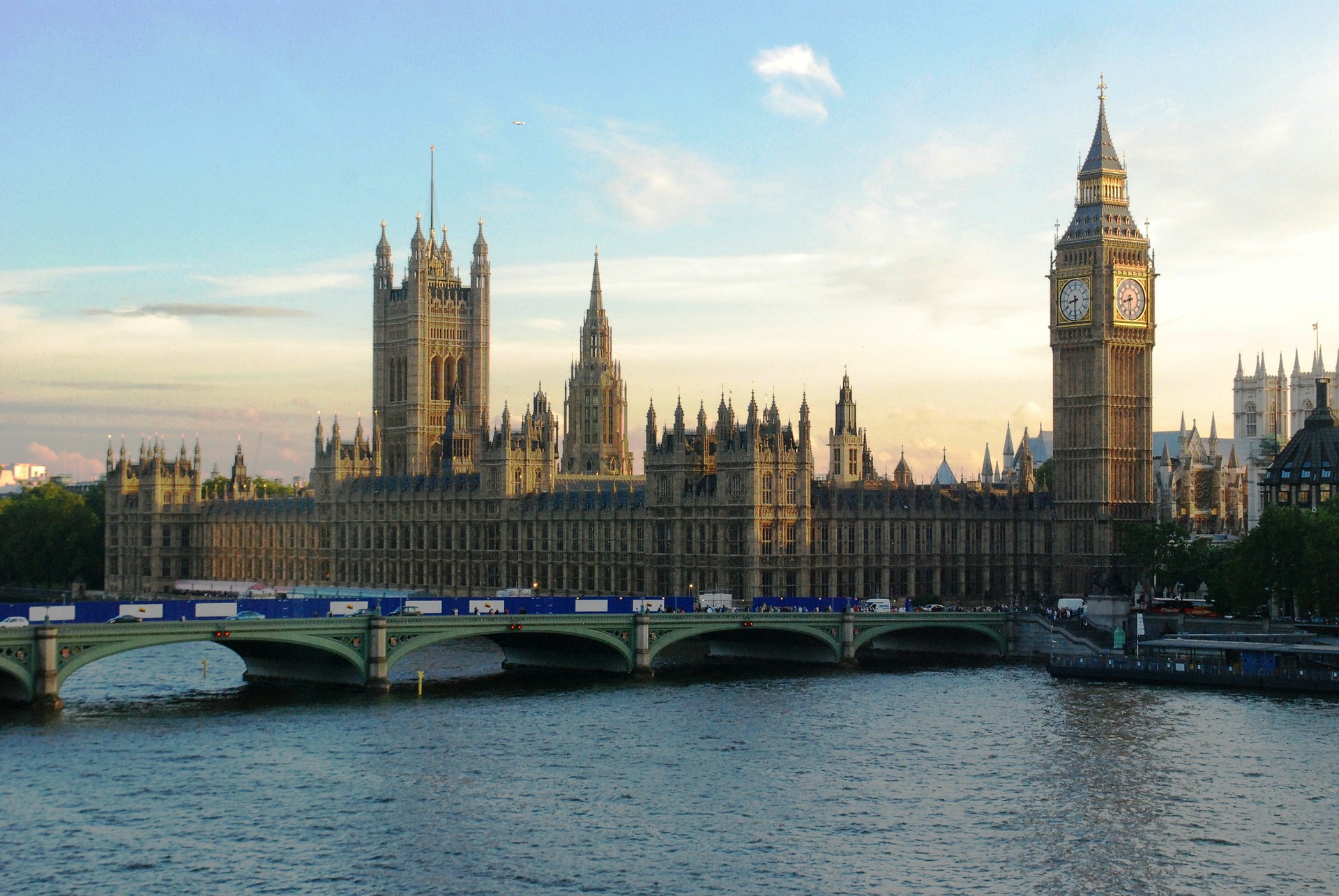
Clear the Lobby: What laws are MPs voting on this week? – w/c 11th March
March 11, 2019
Your Weekly Commercial Awareness Update – w/c 18th March
March 22, 2019Your round-up of the stories that you should discuss at interview this week:
Knife offences hit 9-year high
Reported by Sarah Mullane
The level of offences of knife and weapons crime in England and Wales has hit its highest level since 2009, according to government figures.
In a recent report, the Ministry of Justice revealed that almost 21,500 crimes were dealt with in 2018 alone, equating to around 60 a day. Two thirds of these cases were made up knife and weapon possession offences, whilst the other third was made up of threats. Due to the reporting of certain crimes as either murder or attempted murder, stabbings were not included in this figure.
Rory Steward, the Justice Minister, said that “knife crime destroys lives and shatters communities, and this government is doing everything in its power to tackle its devastating consequences.” His words resonated strongly with the general public, as the government’s announcement on the statistics had reportedly come as a result of repeated national outcry following a string of recent stabbings in the country. In the government report it was announced that one in five culprits of knife and weapons crimes from 2018 were children, likely a correlation with the recent spike in young teenage deaths.
Despite the rise in knife crime, the report also revealed that those carrying knives are now more likely to be jailed and for longer periods of time; a deterrent which has not yet served its purpose. With prison records the highest on record, and having risen by over 10% in the last ten years, the government has been urged to act immediately.
On Tuesday, the government announced that there would be an extra £100m funding for those areas worst affected by violent crime, with Chancellor Philip Hammond stating that the money would be used “to pay for increased police presence and patrolling to make our streets safer.” Despite this promise, the Police Federation said that the funding would only prove to be a “short-term fix” instead urging for additional resources to be created in the form of more police officers.
Find out more from the BBC and the Independent.
Big pay rises for top earners
Reported by Paige Waters
New data which has been collected by HMRC and released alongside the chancellor’s spring statement denotes pay for the highest earners has rose by nearly 6& between April and September last year. This is comparison with an average of 3.7% for the rest of the workforce.
It has been found there is big rises for people who are already earning at least £1 million a year.
There are 31,000 people who are in the top 0.1% income bracket in Britain with pay levels being seven figures or more.
The European Banking Authority have released figures showing that more than 3500 bankers in the UK are paid more than £850,000 per year.
The Chief economist at the Resolution Foundation, Matthew Whitaker has commented on the figures. He has said “it is clear from the OBR forecast that the chancellor has the spending power to end austerity. From the OBR’s figures by 2022-23, he will have the headroom to allocate £24.9bn to unprotected Whitehall departments in a move that could raise their share of GDP back to levels seen in 2015-2016. He could also afford to spend £10.7bn on reversing welfare cuts.”
To find out more, see The Guardian.
US imposes ban on Boeing 737 Max 8 following second crash in 5 months
Reported by Rui Ci Lee
A Boeing 737 Max 8 aircraft flown by Ethiopian Airlines crashed on 10 March 2019, Sunday, in Addis Ababa, Ethiopia. This has led to several countries grounding the aircraft, with the US being the latest country to do so.
The crash in Ethiopia was the second fatal Max 8 disaster in five months, following the crash of the same fleet model operated by Lion Air over Indonesia. Both crashes claimed 189 and 157 lives respectively.
The US’s Federal Aviation Administration (FAA) found evidence prompting it to temporarily suspend all 371 of the US plane-maker’s aircraft. This evidence includes newly refined satellite data suggesting that the flight path for both the Ethiopian and Indonesian flights behaved similarly, as they had crashed minutes into taking off. Air traffic monitor, Flightradar24, also reported that the vertical speed of the Ethiopian Airlines plane was unstable following take-off. US pilots have also complained about a similar problem in late 2018.
Canada had grounded the planes on 13 March 2019, Wednesday, after satellite data showed possible similarities between the flight patterns of Boeing 737 Max planes operating in Canada and the Ethiopian Airlines plane that had crashed. Other nations that have also banned the aircraft from operating include the UK, China, and the European Union.
The US’s Southwest Airlines and American Airlines are two of the three operators with the highest number of Boeing 737 Max 8 aircrafts in the world. However, it is unlikely that the ban will significantly impact the American flight operators. The planes only account for less than 5% of Southwestern Airlines daily flights. On the other hand, United Airlines said that the availability of spare aircraft and rebooking customers will cushion the impact of the ban.
Following the crash, Boeing’s company market value has dropped by nearly $26bn.
Find out more here.
The expansion of Facebook’s privacy policy: Zuckerberg outlines security plan
Reported by Emma Ducroix
The aim of Zuckerberg is to transform Facebook into a “privacy-focused platform.”
Owner of Messenger and WhatsApp, Facebook is facing message encryption. That is to say, targeted adverts are clearly a negative point for a “privacy-focused” platform. This point limits the ability to make money.
The wish of change, by Zuckerberg, is remarkable, because it is important to remember that Facebook has come under fire for a series of privacy scandals.
For instance, in 2018, the data of about 50 million users had been passed on to a political consultancy.
According to Dave Lee, BBC’s North America technology reporter, Facebook might want to abandoning its responsibilities for the past facts of privacy compromising.
The billionaire Facebook founder declared: “Facebook and Instagram have helped people connect with friends, communities, and interests in the digital equivalent of a town square”.
The aim for the Facebook owner is to develop the social media network into one focused around privacy, reducing permanence, and secure data storage.
As part of his privacy goals, he said Facebook would not “store sensitive data in countries with weak records on human rights like privacy and freedom of expression.”
This quote includes that Facebook may be blocked in some countries, a compromise to take. We will be able to see this change happen over the next few years, and will happen gradually.
And the Facebook boss added: “I believe we should be working towards a world where people can speak privately and live freely knowing that their information will only be seen by who they want to see it and won’t all stick around forever. “
We could say that it is finally listening to what its users want and responding to their changing habits, rather than introducing its own ideas.
According to the poor track record on privacy for Facebook, we can constat that Zuckerberg is trying to find a remedy.
The shift to more intimate communications between smaller groups, making those conversations private, and no longer keeping data for a long period of time is no doubt designed to this remedy.
Facebook has been sharply criticised in the past over lack of user privacy and the spread of offensive content and “fake news”.
As an example of no-focus on privacy, close to $80bn (£61bn) was wiped off Facebook’s share value in just days last March over the Cambridge Analytica scandal.
Cambridge Analytica denied using the data to aid US President Donald Trump’s election campaign in 2016, and claims it had deleted the information in line with Facebook’s policies.
Which is a story to be continued.
However, despite the scandal, Facebook says its user numbers have continued to grow. The number of people who logged into its site at least once a month jumped 9% last year to 2.32 billion people.
User numbers in the US – its second-largest market – have fallen by 15m since 2017 however, according to market research firm Edison Research.
Find out more here, on the BBC.
Get these updates straight to your inbox every week by signing up here.



